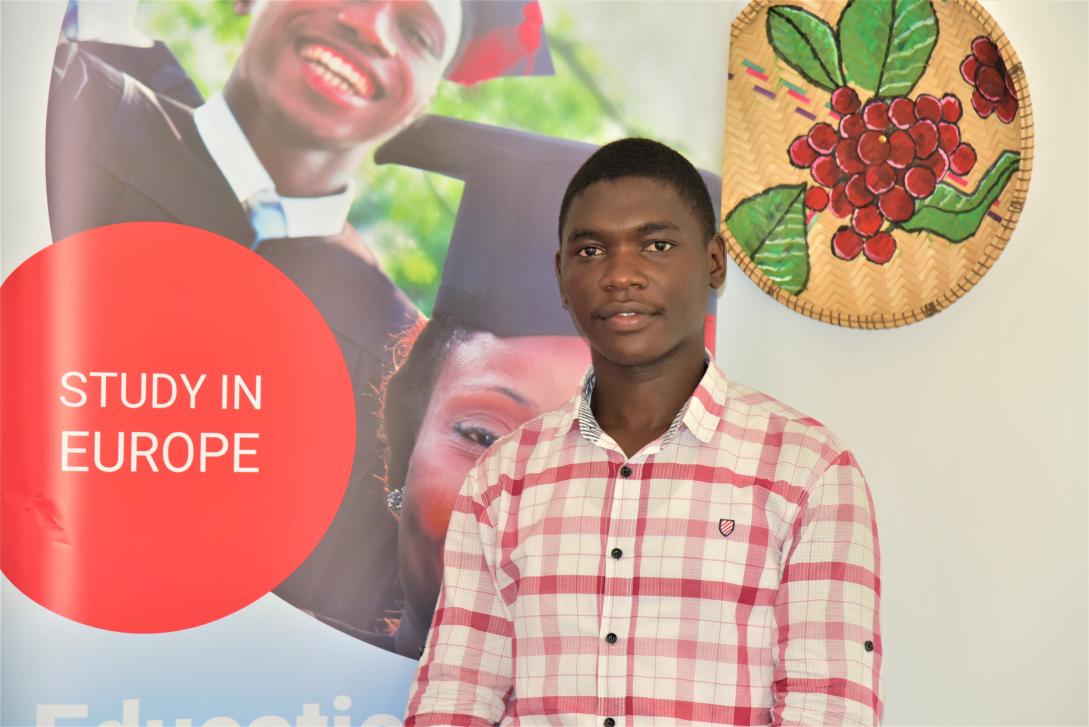Erasmus+ Scholarship Opens Doors: Tanzanian Scientist Finds "Crystal Clear" Knowledge & Global Network

"Hydrobiomanipulation? Sounds like something out of a sci-fi movie," laughs Antidius Raphael, a 27-year-old environmental scientist and ecohydrologist. Despite majoring in the environmental sciences field, this complex term remained theoretical for him throughout his undergrad. "We covered it every year, but it never truly clicked. That changed when I pursued my Master's degree in Applied Ecohydrology in Europe."
His Master’s journey began in 2020 after securing the Erasmus Mundus Joint Master's Scholarship Programme, funded by the European Union. Antidius says he first heard about the scholarship from a visiting Portuguese professor who came to his then-Sokoine University of Agriculture for a training, a few months before he was to graduate.
As part of the training, students were required to make presentations of their research. Fortunately, for Antidius, the professor liked his research and encouraged him to advance it at Master’s level.
"I expressed interest in pursuing a Master's, but finances were a big hurdle," recalls Antidius. "That's when he (the professor) mentioned the Erasmus program. It was completely new to me, and after he explained it, we stayed in touch."
Fast forward to 2021, Antidius embarked on his European adventure. Beyond the financial support and cultural exchange, what truly impressed him was the program's intergrated practical approach.
"Remember I mentioned never understanding hydrobiomanipulation in undergrad? Well, it literally took two minutes for one of the professors, a founding figure in ecohydrology, to make it crystal clear. We weren't just in classrooms; we were out in the field, seeing it in action, understanding its principles firsthand. That experience has stuck with me ever since."
This hands-on learning extended beyond university walls. Experts from private companies were regularly invited to share their field experiences, enriching the students' perspectives, he reveals. Furthermore, since Erasmus programmes are collaboratively created and delivered, students get opportunity to study at least in two countries. In this case, Antidius had a chance to study in four countries Portugal, Poland and German and Belgium and a field visit in France.
Despite these undeniable benefits, Tanzania's participation in the program remains limited. With an average of six to seven students awarded scholarships each year, it barely scratches the surface of the country's student population. However, Christine Grau, EU Ambassador to Tanzania, underscored the significance of this opportunity, urging Tanzanian students to apply.
"This is an incredible opportunity for Tanzanian students to access high-quality education and cultural immersion in Europe," she emphasizes. "The application process is straightforward, and I encourage everyone to explore this path."
Antidius echoes the Ambassador's sentiment. "Anyone with the right qualifications and commitment can apply," he assures. "Just gather the necessary documents, put your best foot forward, and trust the application process. This program could be the key to unlocking a world of knowledge and experience, just like it did for me."
About Erasmus Mundus Joint Masters
Erasmus Mundus Joint Masters are advanced master's programs that offer an integrated educational experience. These programs are collaboratively created and delivered by international alliances of higher education institutions.
Each Erasmus Mundus scholarship program is composed of a minimum of three higher education institutions from different countries, with at least two coming from EU Member States or associated third countries.
Furthermore, this scholarshipmay also include other partners, whether educational or non-educational, who possess expertise in the relevant field of study.
Funding from the EU supports the operation of these programs and provides competitive scholarships to exceptional students worldwide.





